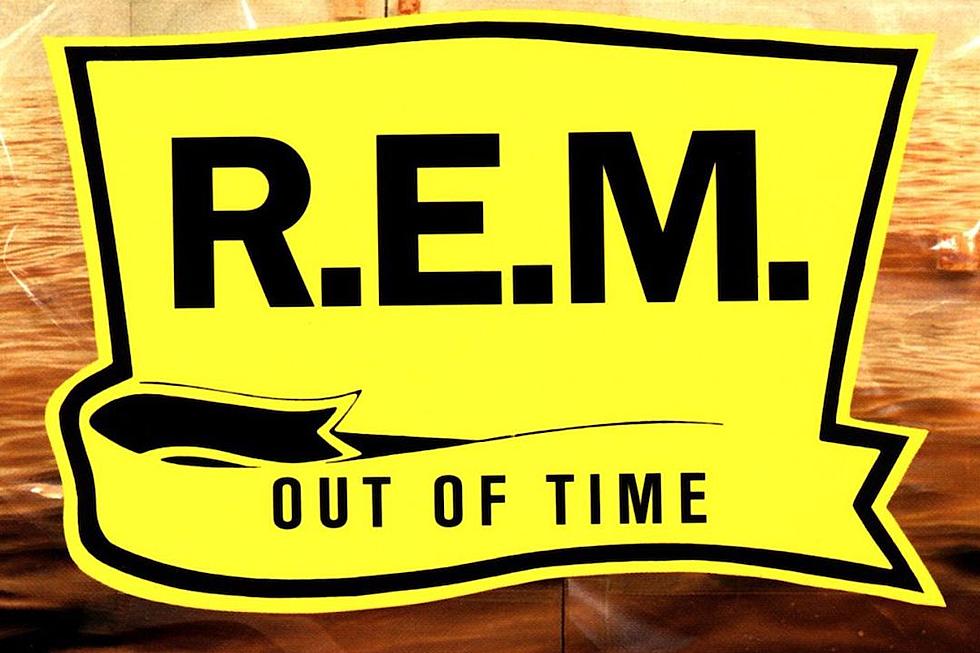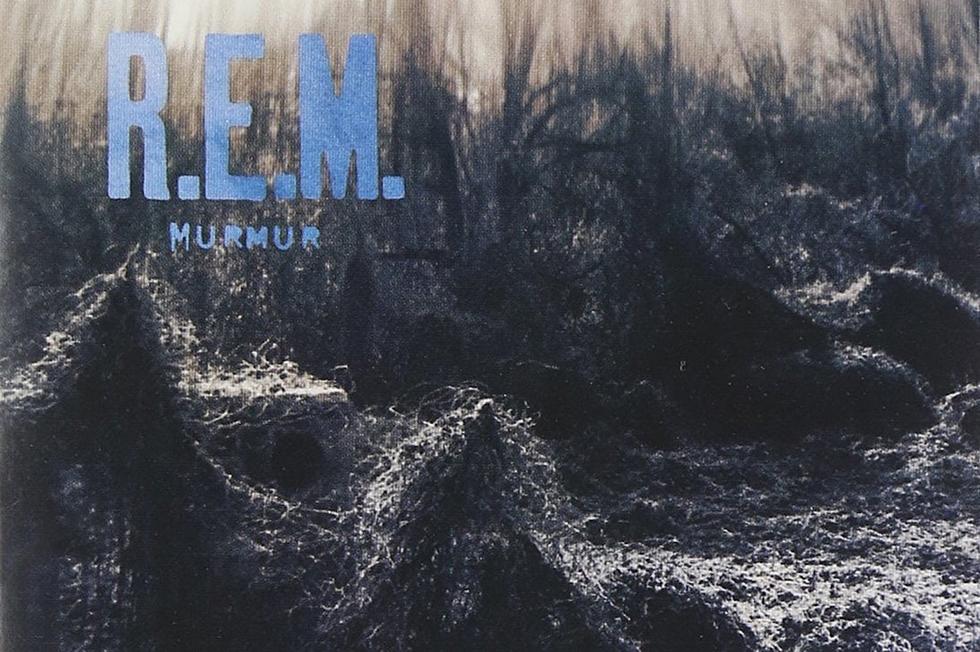
R.E.M.’s Farewell: Answering Five ‘Collapse Into Now’ Questions
Few bands break up as gracefully as R.E.M. The alt-rock band called it quits in September 2011, writing on their website, “We walk away with a great sense of gratitude, of finality, and of astonishment at all we have accomplished.”
No fights, no drama, no ugly headlines — it's an impressive way to bow out. They also left behind a parting gift: their 15th and (presumably) final studio LP, Collapse Into Now, issued only six months prior.
"The whole point of it is, we’re walking away on a creative high and on our own terms," bassist Mike Mills told The Daily Beast. At the time, most critics seemed to agree: Collapse Into Now earned solid reviews upon its initial release, seemingly positioning it as a mid-tier entry in the R.E.M. canon. But now that 10 years have passed, it's worth listening back with a fresh ears.
How does the record hold up today? Does the breakup color our judgment? And is this truly the end for Michael Stipe and company? Below, five UCR contributors tackle these questions — and more.
1) What's your overall take on the album?
Michael Gallucci: Like almost all of their albums following drummer Bill Berry's departure in 1997, Collapse Into Now follows a pattern: It's not great, it's not awful and it's not as good as the record that came before it. And like almost all of those post-Berry albums, it's pretty forgettable.
Ryan Reed: To boil it down to one word, "meh." There are some invigorating moments here, particularly when they crank the amps: "Discoverer" and "All the Best" flirt with the grandeur of classic R.E.M., even if they rely more on Michael Stipe's speak-singing than actual melody. But too much of the album drifts by with murky mid-tempo ballads that I still struggle to sink my teeth into.
Allison Rapp: Collapse into Now is characteristically messy, and that's precisely why I like it. Incorporating so many of the elements that they've become beloved for over the years — Peter Buck's mandolin playing, Mike Mill's multi-instrumental talent, Michael Stipe's knack for saying exactly what you're thinking but can't say yourself — it's so authentically true to themselves as a band and as people.
Annie Zaleski: I love it. It's such a strong career-ending effort that highlights two of R.E.M.'s strengths: noisy guitar rock ("Alligator_Aviator_Autopilot_
Jed Gottlieb: On Accelerate, R.E.M. charged back into rock ‘n’ roll. For Collapse into Now, the band keep charging while playing up their folk-rock revival sound, ’60s fetish and pop band leanings all at once. On Collapse into Now, the band did everything they'd mastered over three decades. Between the opener, tremolo-shaken rocker "Discoverer," and the final track, the Beat poetry-influenced “Blue,” fans got the full range of R.E.M.’s sound.
2) Where does it rank on your REM album list?
Gallucci: The only album I dislike more than Collapse Into Now is 2004's Around the Sun. It's just so lifeless and, as I mentioned earlier, forgettable. That said, every R.E.M. album — besides the super-boring Around the Sun — has at least a couple moments of inspiration, so Collapse Into Now isn't unlistenable.
Reed: Toward the bottom — I can't put it above anything from the '80s or '90s. Most of the post-Bill Berry stuff blurs together for me, but I definitely prefer Accelerate in a side-by-side comparison, and "Imitation of Life" alone gives the edge to Reveal. I'd rank Collapse Into Now over Around the Sun but not much else.
Rapp: My favorite R.E.M albums are also tangled and disorderly: Reckoning, Document, Lifes Rich Pageant. Collapse Into Now probably sits just below those.
Zaleski: Probably in the middle — my rankings shift all the time, but it's an album on which I rarely skip tracks.
Gottlieb: If Collapse into Now had been released, exactly as it is, between Out of Time and Automatic for the People, it would be considered a classic. It may have sold five million copies and topped a dozen “Best Albums of the ’90s” lists. But R.E.M. have a massive legacy and amazing catalog. Only because the band has so many wonderful albums, this one comes in in the middle of the pack, maybe eighth or ninth if I’m pushed. What counts is it's miles closer to Automatic than it is to Around the Sun.
3) Did the album make more sense after they announced their retirement?
Gallucci: It probably explains why they sound so bored through most of it. Plus, there are songs — lyrically, musically — that essentially take on the fatigue the band was no doubt feeling at the time. Does it sound like a final statement? Not really. But it certainly sounds like the end was near.
Reed: It didn't really impact my feelings — other than placing it in a more sympathetic light. (If this hadn't been the band's "last" album, maybe I'd like it even less.) It's always sad when a band this great breaks up, but I was also happy they put on the brakes without any inter-band drama or cringe-worthy music. I'm not the biggest Collapse fan, but it adds a handful of solid songs to an already iconic catalog.
Rapp: In some ways, lyrically-speaking perhaps. But if you put this album on not knowing it was their retirement album, you may very well not pick up on that at all. There's a lot to be said about artists and bands whose work ends up in an entirely different place from where they began. It's to be expected — your sound will inevitably shift as you grow older and wiser, and that's a good thing almost all of the time — but the best thing about Collapse Into Now is it still sounds like them all these years later. They're no longer scruffy Georgia kids — they're seasoned musicians, but they haven't changed so far as to be beyond recognition.
Zaleski: Completely. There are so many callbacks to previous songs and albums: the "Country Feedback"-like guitars, the 'Monster'-like buzzsaw riffs and having Patti Smith guest on "Blue," the last song. It feels like a very full-circle album.
Gottlieb: Absolutely. I don’t think it was an accident that the group called it quits after making something that gathered all its old styles on one LP. Or was it that after making something so quintessentially R.E.M., the guys realized they had done everything they set out to do. Side note: You don’t bookend your 15th record with the same cry of “Discoverer! Discoverer! Discovery!” without sending a message (even if, in very R.E.M. fashion, that message is cryptic as hell).
4) What's your favorite song on the album and why?
Gallucci: "Oh My Heart" sounds like early '90s R.E.M. with its upfront mandolin, somber and subtle backing instruments and Michael Stipe's plaintive, inviting vocal. There's also a sense of longing melancholy to the song that pretty much sums up most of the album for me.
Reed: Probably "All the Best": It's one of the heaviest moments on the album, and it sounds like they could have written it right there, on the spot, without toiling too much over the arrangement.
Rapp: "Walk It Back." (Though I also love "ÜBerlin.") Some of my favorite R.E.M. songs are the ones that stand back just enough for Stipe's voice to really take center stage completely. He has this beautiful, forlorn emotion to his vocals in "Walk It Back."
Zaleski: "It Happened Today." Songs using the word "hooray" in the lyrics are always more appealing, and I love the wordless singing and lovely harmonies. It's a very optimistic, warm song.
Gottlieb: “Blue.” Yes, it absolutely cribs from “Country Feedback,” but the whole theme of the album is “R.E.M. rips off R.E.M.” Michael Stipe's spoken word punches as hard as any vocals with him saying, “I want Whitman proud. Patti Lee proud. My brothers proud. My sisters proud. I want me. I want it all. I want sensational. Irresistible. This is my time, and I am thrilled to be alive.” He’s talking to himself, letting that kid in the ’70s know what will come to pass. And around him the great Patti Smith sings, and Peter Buck and Mike Mills fill the spaces with trembling guitars, dreamy keys and lots of magic.
5) Do you think it's really their last album?
Gallucci: Yeah, these guys were almost always honest with themselves and fans about their intentions. They should have called it quits after Berry left, though I do like 1998's Up. The four albums made in the 2000s will never be anyone's favorite R.E.M. records — none of them are probably even in anyone's Top 10. R.E.M. are too smart to damage their legacy with a halfhearted reunion album.
Reed: I think they really meant to call it a day. And they have too much integrity to half-ass some lame reunion. But given how active and friendly everyone is — including Mike Mills and Peter Buck playing together in the Baseball Project — a studio one-off doesn't seem too far-fetched. I wouldn't bet on it, though.
Rapp: While I would love to be proven wrong, yes, I think it is. I do hope they'll continue to stay connected to one another — guest on each other's work, maybe play a show or two. It isn't very often that we get to see such a clean split amongst a close-knit band, and I think they all realize another album might be like taking two steps backward.
Zaleski: Yes, and I'm totally okay with that! Every member of the band has gone on to do interesting creative endeavors since, and I'm happy to follow those.
Gottlieb: I hope not, but I think so. I think the guys still get along but this seems as final as the Talking Heads’ end.
Top 100 Rock Albums of the '90s
More From Diffuser.fm










